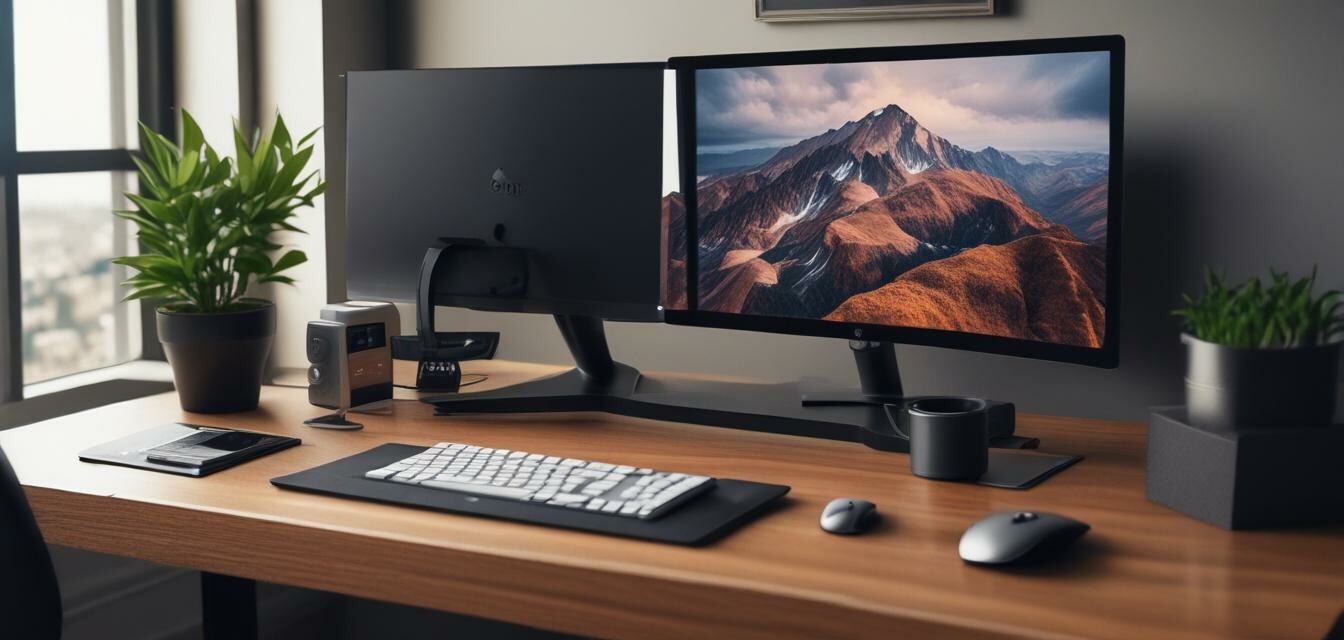
Effective strategies for managing remote work
Key Takeaways
- Establish a dedicated workspace to create a boundary between work and personal life.
- Utilize tools and technology to enhance communication and collaboration.
- Implement time management techniques to stay productive.
- Schedule regular breaks to maintain mental well-being.
- Stay connected with colleagues to foster teamwork and engagement.
With the rise of remote working, many people have found themselves navigating new challenges in managing productivity and achieving a healthy work-life balance. Whether you're working from home for the first time or are a seasoned remote worker, effective strategies can help you maintain productivity while enjoying the benefits of working from anywhere. This article provides insights and tips to enhance your remote work experience.
Creating an effective workspace
Your workspace plays a crucial role in how effectively you can work from home. Here's how to create an environment that enhances focus and productivity:
- Designate a specific area in your home solely for work.
- Invest in ergonomic accessories to improve comfort.
- Maintain a clutter-free desk to minimize distractions.
Examples of effective workspaces
| Workspace Feature | Description |
|---|---|
| Ergonomic Chair | Provides support to maintain good posture during long hours of work. |
| Multi-Monitor Setup | Enhances productivity by making it easier to multitask and manage different applications. |
| Task Lighting | Reduces eye strain and creates a comfortable working ambiance. |
Utilizing technology for remote work
Modern technology offers a variety of tools that can significantly improve remote work life. Check out these tools and solutions:
- Project Management Software: Keep tasks organized and track progress.
- Video Conferencing Tools: Foster collaboration with real-time communication.
- Cloud Storage: Ensure access to documents from anywhere.
Recommended tools for effective remote work
| Tool Category | Examples | Benefits |
|---|---|---|
| Project Management | Trello, Asana | Helps organize tasks and deadlines. |
| Communication | Zoom, Slack | Enhances team collaboration. |
| File Storage | Google Drive, Dropbox | Easy access and sharing of files. |
Time management techniques
Effective time management is crucial for remote workers. Here are some strategies to help you stay on track:
- The Pomodoro Technique: Work for 25 minutes, followed by a 5-minute break.
- Time Blocking: Allocate specific blocks of time for different tasks throughout your day.
- Set Goals: Define daily, weekly, or monthly goals to maintain focus and motivation.
Maintaining work-life balance
It can be easy to let work bleed into personal time when working from home. Here are some tips to help maintain a healthy balance:
Tips for work-life balance
- Set clear start and end times for your workday.
- Take regular breaks to recharge.
- Engage in non-work activities after hours.
Fostering team connections
Staying connected with your colleagues is vital for a healthy work culture. Consider the following methods:
- Regular check-in meetings to share updates.
- Virtual coffee breaks to foster informal discussions.
- Collaborative projects to enhance teamwork.
The importance of mental health
Prioritizing mental health is essential as remote work can be isolating. Implement these practices to help maintain good mental health while working remotely:
- Stay physically active with regular exercise.
- Practice mindfulness and meditation techniques.
- Seek support when needed by talking to a friend or professional.
Pros
- Flexibility in work schedule.
- Elimination of commuting time.
- Ability to create a personalized work environment.
Cons
- Possible feelings of isolation.
- Difficulty in separating work from personal life.
- Potential distractions at home.
Conclusion
Managing remote work effectively requires a combination of a well-structured workspace, appropriate technology, time management, and a focus on mental well-being. By utilizing these strategies and tools, you can enhance your productivity and maintain a work-life balance that leads to a fulfilling remote work experience. For more tips and tricks on optimizing your home office, check out our DIY tips and tricks and explore some ergonomic accessories to support your setup!